The Beastly Kingdom: Disney’s Animal Kingdom’s Unbuilt Land of Fantasy
When Disney’s Animal Kingdom opened in 1998, it was heralded as a theme park that would combine the wonders of real-world wildlife with the imaginative magic of Disney. Its slogan, “Nahtazu” (a playful pun on “not a zoo”), emphasized that the park was more than just a traditional animal reserve. It was meant to be a celebration of all animals—real, ancient, and mythical. While today’s visitors are greeted by iconic lands like Africa, Asia, and Pandora – The World of Avatar, there was once a bold and ambitious plan to bring to life a land of fantasy and myth: Beastly Kingdom.
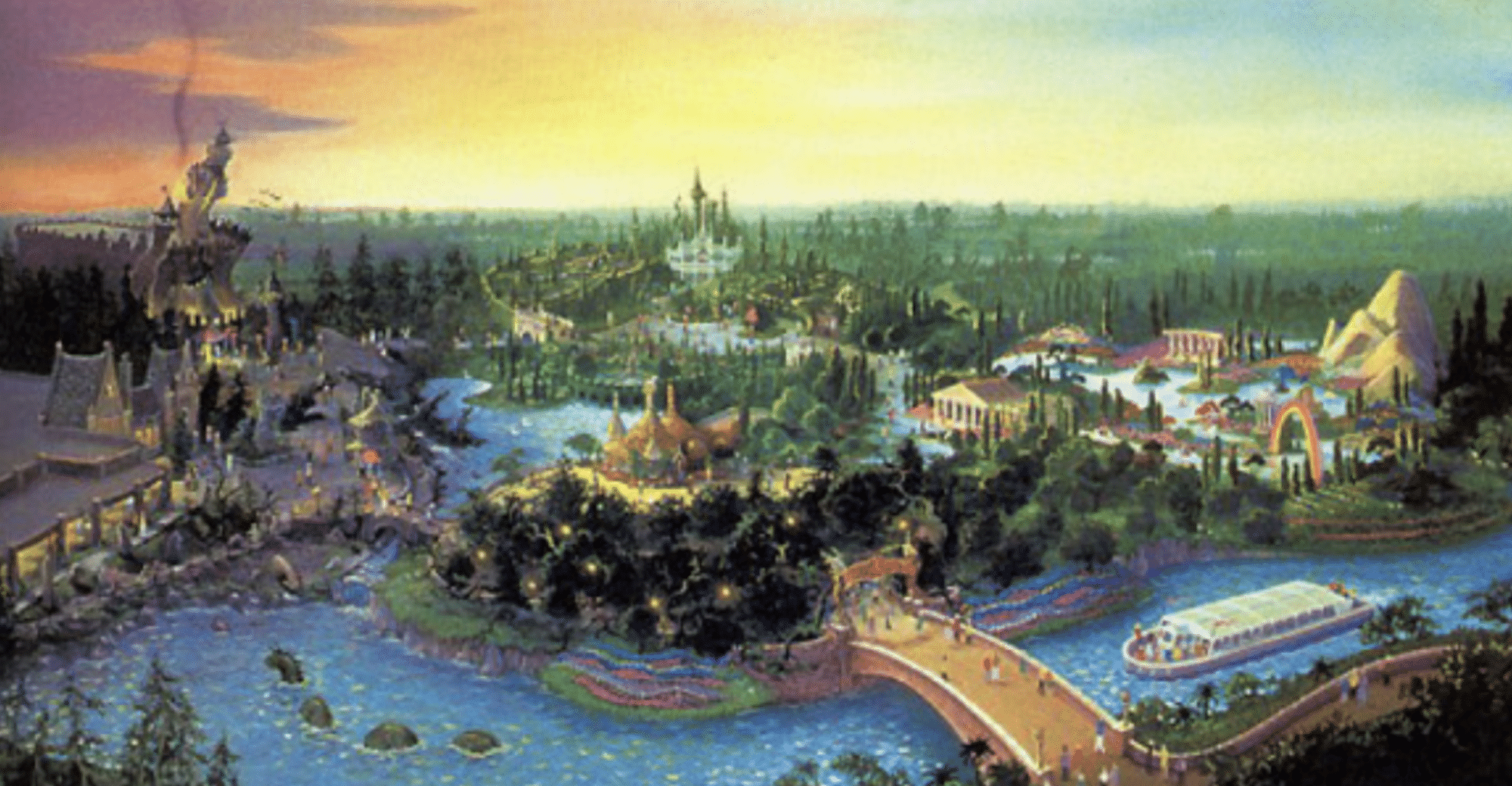
Beastly Kingdom was envisioned as a place where guests would encounter creatures from the pages of legend and mythology—dragons, unicorns, griffins, and other fantastical beings. This section of the park would have stood as a direct representation of the “mythical” animals part of Animal Kingdom’s original mission. While the land never came to fruition, its story is fascinating, filled with imaginative ideas, creative concepts, and even a sense of lost potential.
The Vision for Beastly Kingdom
The design for Beastly Kingdom was rooted in the concept of duality—splitting the land into two realms: one light and one dark, a reflection of both the benevolent and malevolent sides of mythology.
- The Light Side: The lighter, more whimsical part of Beastly Kingdom would have featured peaceful and beautiful creatures such as unicorns, fairies, and phoenixes. At the heart of this section was to be a boat ride called Quest for the Unicorn. Guests would have journeyed through a magical forest, encountering creatures of myth and legend, culminating in a serene encounter with a unicorn.
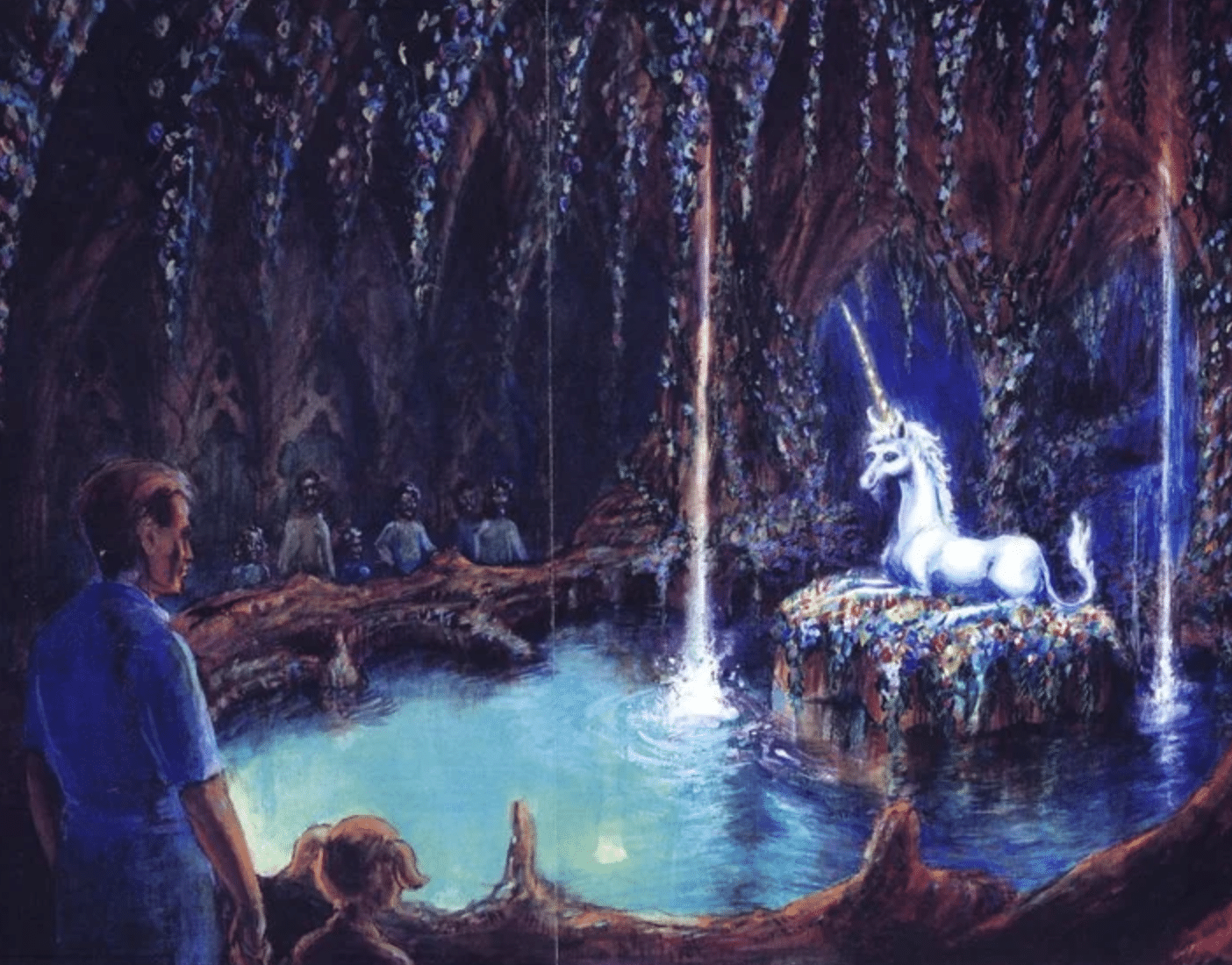
- The Dark Side: On the opposite side, the darker area of Beastly Kingdom would have been dominated by a more menacing tone. The central attraction here would have been Dragon’s Tower, a thrilling roller coaster that would take guests through the lair of a fierce, fire-breathing dragon. The dragon was said to be guarding a treasure, and the storyline of the ride would have revolved around the guests’ daring attempt to steal it. The coaster would have combined traditional thrills with elaborate storytelling, complete with animatronics and detailed set pieces, making it one of the most ambitious attractions of its time.
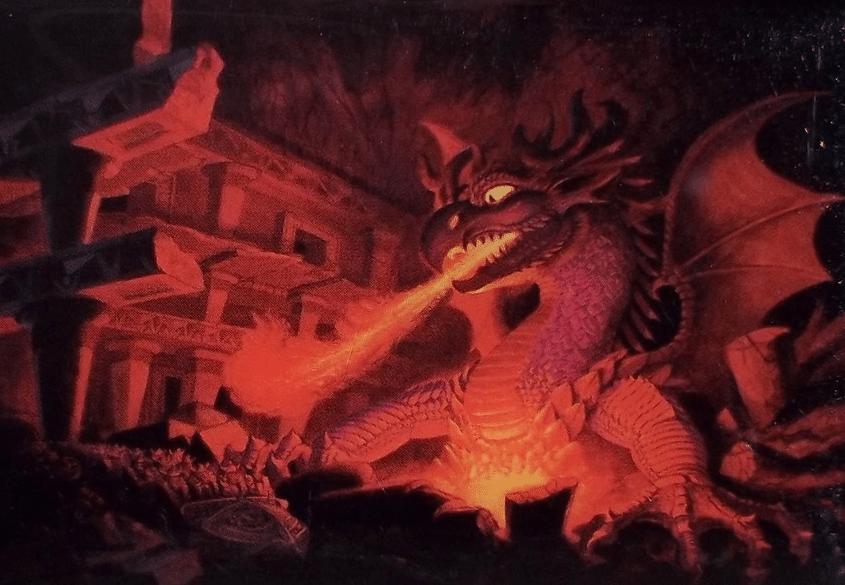
A third attraction, called Fantasia Gardens, was also planned. Based on Disney’s 1940 film Fantasia, this area would have been a musical and visually immersive experience where guests walked through lush, vibrant gardens inspired by the film’s “Dance of the Hours” and “The Pastoral Symphony” segments. This attraction would have featured a combination of light, music, and animatronic creatures, capturing the whimsical spirit of Fantasia.
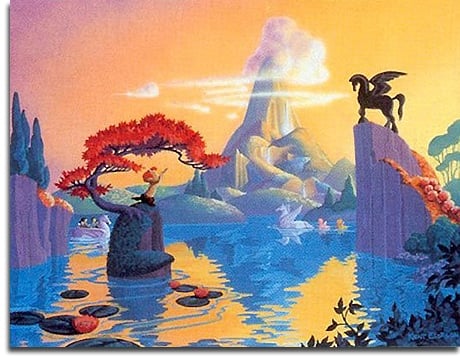
Why Beastly Kingdom Was Never Built
Despite the ambitious plans, Beastly Kingdom was never constructed. The reason for this ultimately came down to a mix of budget constraints and shifting priorities.
Disney’s Animal Kingdom was already an expensive project—one of the costliest parks Disney had built at that time. As the park’s opening date approached, the decision was made to focus the initial phase on real animals, which aligned more with the park’s conservation and wildlife themes. The more fantastical elements were deferred for a future expansion. However, as time passed, other priorities took precedence. The addition of Asia, and later, the highly successful Pandora – The World of Avatar, became the park’s focal points for growth.
Compounding the issue was the fact that many of the creative minds behind Beastly Kingdom left Disney before the land could be built. Some of these former Imagineers joined Universal Studios, where they went on to work on attractions for Universal’s Islands of Adventure. The influence of Beastly Kingdom can be seen in Universal’s Lost Continent area, particularly the now-defunct Dueling Dragons roller coaster, which bore a striking resemblance to the proposed Dragon’s Tower.
The Legacy of Beastly Kingdom
Although Beastly Kingdom was never realized, its influence and remnants can still be felt in Disney’s Animal Kingdom. For instance, the park’s entrance features a dragon prominently on its logo and park signage—a nod to the mythical creatures that were meant to inhabit the unbuilt land. Moreover, the park’s original promotional materials, including early brochures and concept art, featured creatures like unicorns and dragons alongside real animals, showcasing the initial vision for Beastly Kingdom.
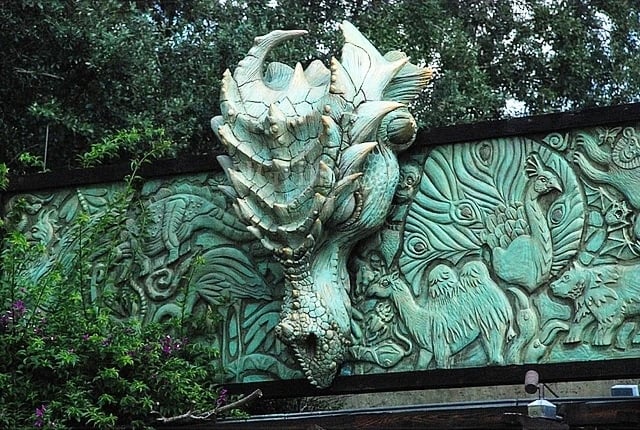
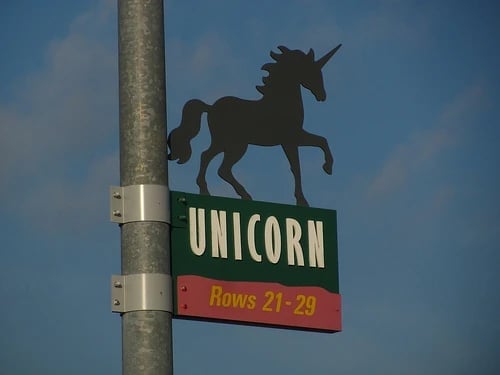
Additionally, Disney has managed to fill the void left by Beastly Kingdom in other ways. The launch of Pandora – The World of Avatar in 2017 brought to the park an otherworldly, immersive environment that feels in many ways like a spiritual successor to the mythical concepts of Beastly Kingdom. The bioluminescent creatures and floating mountains of Pandora evoke a sense of awe and wonder similar to what Beastly Kingdom might have offered with its dragons and unicorns.
A Fantasy Unfulfilled, but Not Forgotten
To this day, Beastly Kingdom remains one of the most intriguing “what if” stories in Disney history. For many Disney fans, it represents a tantalizing glimpse of what could have been—a land that blended fantasy and adventure in a way that would have been unique to Disney’s Animal Kingdom. While it may never be built, its legacy endures as a symbol of Disney’s boundless creativity and imagination, a place where mythical creatures might still roam in the minds of Imagineers and Disney enthusiasts alike.
You May Also Enjoy: WDW’s Haunted Mansion: A Timeless Journey Through Fright
- Disney Dreamers Academy 2025: Making Magic Happen - April 2, 2025
- Both WDW Water Parks Reopen May 21 for First Time Since 2019 - April 1, 2025
- Epic Universe Upgrades Now Available for May 2025 Opening - March 28, 2025
Our Official Travel Partner of The Main Street Mouse is MEI-Travel & Mouse Fan Travel

Mouse Fan Travel® an Authorized Disney Vacation Planner, has been planning and creating magical Disney vacations since 2005. Their mission is to provide premium service and expert advice to help you get the most for your vacation time and dollar. Their Disney Travel Agents operate with the highest degree of integrity and will handle your family vacation, reunion, honeymoon, corporate incentive trip or getaway, as if it were their own. They pride themselves on expertly representing and advocating for you – their client.
The next time you and your family are planning a Disney vacation, visit Mouse Fan Travel for your no obligation quote or to answer any Disney vacation questions you may have. Are you looking for a beach vacation, tour or cruise to destinations across the globe? Visit MEI-Travel for exceptional expertise with ZERO agency fees.






